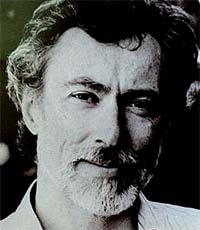
South African writer John Maxwell Coetzee won the 2003 Nobel Literature Prize on Thursday, according to an announcement by the Swedish Academy. The academy said that Coetzee, "who in innumerable guises portrays the surprising involvement of the outsider," will take home the prize sum of 10 million krone (about US$1.3 million).
Born on Feb. 9, 1940 in Cape Town, Coetzee is now living in Australia.
Coetzee's novels are characterized by their well-crafted composition, pregnant dialogue and analytical brilliance. But at the same time he is a scrupulous doubter, ruthless in his criticism of the cruel rationalism and cosmetic morality of western civilization.
His intellectual honesty erodes all basis of consolation and distances itself from the tawdry drama of remorse and confession. Even when his own convictions emerge to view, as in his defense of the rights of animals, he elucidates the premises on which they are based rather than he argues for them.
There is a great wealth of variety in Coetzee's works. No two books ever follow the same recipe.
Extensive reading reveals a recurring pattern, the downward spiraling journeys he considers necessary for the salvation of his characters.
His protagonists are overwhelmed by the urge to sink but paradoxically derive strength from being stripped of all external dignity.
A selection of works by Coetzee include Fiction:
- Dusklands 1974
- In the Heart of the Country: A Novel 1977
- Waiting for the Barbarians 1980
- Life and Times of Michael K. 1983 (Winner of the 1983 Booker Prize)
- Foe 1986
- Age of Iron 1990
- The Master of Petersburg 1994
- Disgrace 1999 (Winner of the 1999 Booker Prize)
Nonfiction:
- White Writing: On the Culture of Letters 1988
- Doubling the Point : Essays and Interviews 1992
- Giving Offense: Essays on Censorship 1996
(Xinhua News Agency October 3, 2003)
|

